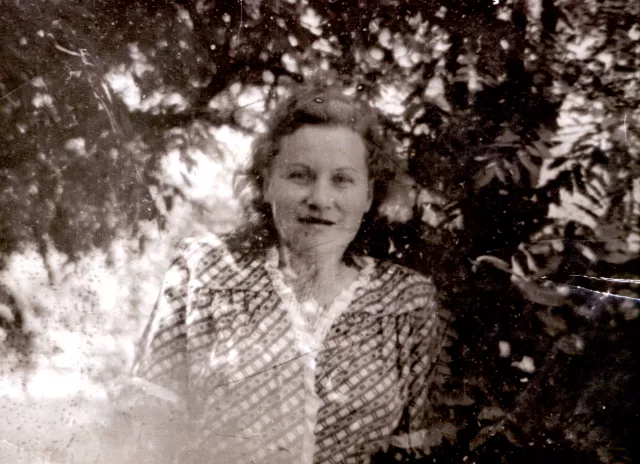This is me at a resort in the Crimea in the middle of the 1950s.
Life was very difficult in the late 1940s and early 1950s, the period of anti-Semitic campaigns: the Doctors' Plot and the struggle against anti-Semitism. Everywhere - on the radio, in newspapers, on public transport and in stores - Jews were abused. Many of them lost their jobs and had to leave Kiev. Our collective at school was very good, and I didn't face any abuse at work. We had a very good director, and his deputy was a very nice intellectual, too. We had to discuss the current documents issued by the Party at party meetings at school, but it was a mere formality. I didn't become a party member. It was a verbal requirement of the officials that history teachers had to be communists. I didn't want to become a communist, because I believed that communists and Stalin caused our country lots of troubles. They couldn't force me to become a party member and I had excellent performance records, so the authorities just left me alone.
In 1953 Stalin died. People around were crying and so was I. We were crying out of fear of the future. The Twentieth Congress denunciated the cult of Stalin. We [history teachers] were kind of at a loss. We didn't know what we were supposed to tell the students. Later we attended workshops and had school programs changed, allowing us to speak about what Stalinism was like openly. We spoke half-truths about the crimes of Stalin and about the lack of principles of his companions, but we never had any doubts about the correctness of the idea of communism. We were telling children that they were the happiest children living in the best country in the world, in the country of socialism, when children in capitalist countries were starving and dying from hard work.
Rachel Persitz
The Centropa Collection at USHMM
The Centropa archive has been acquired by the United States Holocaust Memorial Museum in Washington, DC.
USHMM will soon offer a Special Collections page for Centropa.
Academics please note: USHMM can provide you with original language word-for-word transcripts and high resolution photographs. All publications should be credited: "From the Centropa Collection at the United States Memorial Museum in Washington, DC". Please contact collection [at] centropa.org.









